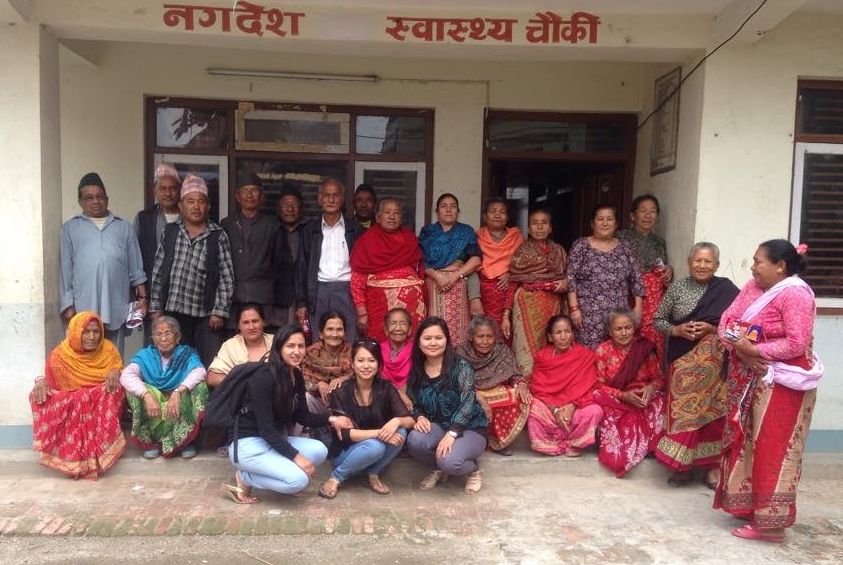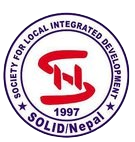Early Rehabilitation Support Project for Patients with Respiratory Disease in the Kathmandu Valley - Promotion of Respiratory Rehabilitation
Introduction
This is a three years project, started in April 2015 and will be ended at March 2018. This project is being supported by Japan International Medical Technology Foundation (JIMTEF), Japan. This project is being implemented in Tribhuvan University Teaching Hospital (TUTH) and Bhaktapur district. Till date, coordination with different stakeholders and initial preparation activities has been completed. The schedules of training and orientation are very close under the implementation process.
Background and Necessity of the Project
In recent years, an increasing number of patients with respiratory diseases, particularly chronic obstructive pulmonary disease (COPD), has become a very serious problem in the Kathmandu Valley with a high population density. In this region, respiratory disease is caused by combined factors including smoking, air pollution (due to air-borne dust and basin-specific air convection), and inhalation of soot produced by cooking indoors. The economic and social burdens due to COPD are substantial and increasing. There is an urgent need to take appropriate measures and actions against this threat.
Project Purpose
Respiratory rehabilitation services will be provided at hospitals and clinics in Bhaktapur district, so that dyspnea will be reversed and the exercise capacity and quality of life will be improved in patients with chronic respiratory diseases including COPD. In addition, the community’s awareness of the disease prevention will be enhanced.
Target Area and Target Group
Bhaktapur district, Kathmandu Valley
Patients with respiratory disease and their family members, local residents, medical and healthcare staff, and trainers for respiratory rehabilitation in Bhaktapur district.
Expected Outputs
Medical/healthcare human resources, such as physicians, nurses, physiotherapists, physician extenders (paramedical), and healthcare workers, who have the knowledge and skills of respiratory rehabilitation, will be developed.
Patients will be able to manage and train themselves at home with their family members.
Awareness of disease prevention will be promoted in the community.
The sustainable system for the project will be established.
Designed Activities
To provide training for medical and healthcare staff at hub hospitals and local health centers.
To implement the education program for patients (about self-care and home-based training) and patients’ family members (to improve their understanding and get their support).
To hold seminars for local residents to educate them about disease prevention.
To establish the sustainable implementation system in cooperation with the local community, government, and NGO.
Project Duration
From April 2015 to March 2018 (3 years)Roles and Responsibilities of JIMTEF
Shigeki Hayashi, Executive Director, will serve as the project manager.
JIMTEF will administer the operations (such as progress management and accounting) of the entire project and give technical guidance (including respiratory rehabilitation, prevention and education activities, and training in Japan).
JIMTEF will send the project manager, physicians, physiotherapists, and personnel for operational coordination from Japan three times a year (four times in the last year), for 10 days per time (including the days of entry and departure).
Role of SOLID Nepal
The Executive Director will serve as the local team leader.
SOLID Nepal will support the operational management of the project (such as operational coordination and accounting), patient and family groups, and education activities, will work with the government and monitor the project.
SOLID Nepal will provide four staff members and an office for the project. JIMTEF will pay for these costs to SOLID Nepal, from the project budget approved by JICA.
Others roles
The local team leader will submit monthly reports to the project manager.
JIMTEF and SOLID Nepal will have regular meetings once monthly to confirm the plans and policies and to check the progress of activities. When JIMTEF members are not in the field, the submission of the monthly reports and regular meetings mentioned above will be performed via e-mail.
The project manager and local team leader will keep close contact with each other and will endeavor to ensure the quality of the operations continuously even if the Japanese members are not in the field




